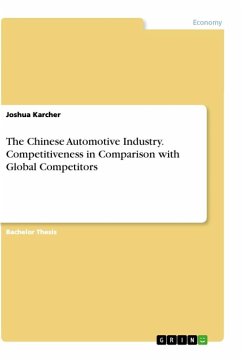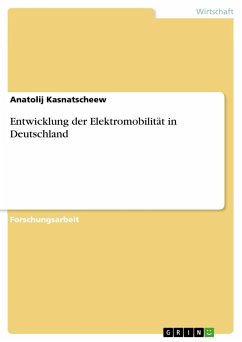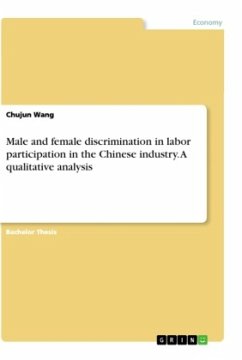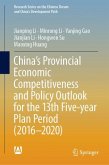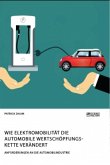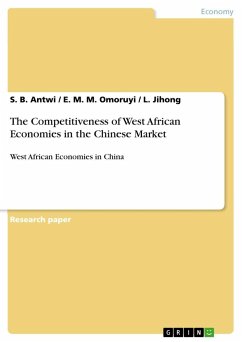Bachelor Thesis from the year 2018 in the subject Economics - Industrial Economics, grade: 1,0, University of Mannheim, language: English, abstract: The following thesis will answer the question: Did China develop a competitive domestic automotive industry?Therefore, the rest of the bachelor thesis is structured as follows: The next section will give an overview of the history and the current market structure of the Chinese automotive industry. The second section contains a literature review of the theory and the empiricism of spillover effects originating from Joint Ventures with foreign enterprises and Foreign Direct Investment.Subsequently, in the third section, the related literature is applied on the case of the Chinese automotive industry. The fourth section presents an application of the infant industry protection argument on the Chinese automotive industry. The fifth section includes an analysis of trade data in order to access the competitiveness of the Chinese automotive industry. Afterwards, there will be a conclusion and an outlook of the possible future developments of the Chinese automotive industry.Since the beginning of economic reforms in China, protection, Joint Ventures, and Foreign Direct Investment played a significant role in the Chinese economic policy to promote industrial development. This is also the case for one of the global most important industries; the automotive industry. The automotive industry is a pillar industry with a vast number of linkages throughout the economy and plays a major role in driving China's economic growth and in ensuring employment.The Chinese government followed the idea of an infant industry protection argument and imposed tariffs and quotas on automobiles and automobile components to promote the development of the automotive industry. Further, the policymakers strived for spillovers originating from foreign Joint Venture partners and Foreign Direct Investment.Like other Chinese industries, the automotive industry experienced massive growth over the last four decades, making China, since 2008, the economy with the largest automobile output globally, surpassing Germany, the US, and Japan. However, there does not exist a single Chinese automobile brand, which can sell more than a few of its Chinese branded cars in the markets of developed countries.This situation raises some questions about the real strength and competitiveness of the Chinese automotive industry.
Hinweis: Dieser Artikel kann nur an eine deutsche Lieferadresse ausgeliefert werden.
Hinweis: Dieser Artikel kann nur an eine deutsche Lieferadresse ausgeliefert werden.

